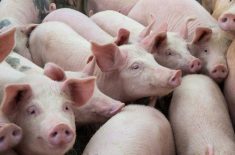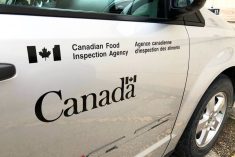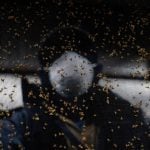The tale of Ontario’s Pigeon King International plays to a worldwide audience Sunday (Feb. 14) by way of a feature on Ponzi schemes and human gullibility on the U.S. TV newsmagazine 60 Minutes.
“It’s been just over a year since Bernard Madoff’s multi-billion dollar Ponzi scheme fell apart,” New York-based TV network CBS said in a release Thursday, referring to the now-jailed New York financier whose investment business was exposed as a Ponzi in late 2008.
However, the network said, “despite all the news about the Madoff scandal, similar Ponzi scams are still thriving.”
Read Also

U.S. livestock: ‘Cattle on feed’ report supports prices
Chicago cattle futures rose as the USDA’s ‘Cattle on Feed’ report showed inventories two per cent down from a year…
Toronto-born journalist Morley Safer, a longtime correspondent for the CBS show, was unable to get PKI’s now-bankrupt founder Arlan Galbraith to consent to an interview for his segment.
Safer instead tells the PKI story from the viewpoint of Ohio farmers Aaron and Joline Humbert, who claim to have lost US$300,000 investing in PKI’s now-defunct pigeon breeding business.
While the company’s operations have yet to lead to any criminal charges, Waterloo, Ont.-based Pigeon King caught the eye of U.S. law enforcement a year before the Madoff scandal went public.
Iowa’s attorney general in late 2007 publicly expressed “concerns” that the business opportunity PKI offered to would-be pigeon producers might not involve any purpose other than “providing inventory for new growers in furtherance of a ‘Ponzi’ type of investment scheme.”
RCMP describe a Ponzi scheme as one in which investors receive returns not from earnings, but from the principal paid in by later investors. “No legitimate investment exists and the money from later investors is used to pay off earlier obligations.”
“Hard-pressed farmers”
Galbraith, who in December was ordered into personal bankruptcy after PKI’s collapse in 2008, is not charged with any crime. According to southern Ontario media, Waterloo Regional Police’s fraud division is still investigating Pigeon King and has been since last summer.
Safer, in an essay on CBS News’ website in advance of Sunday’s program, describes Galbraith as “a plain-faced-salt-of-the-Earth fellow, who favours Iron Boy overalls (and) travelled the breadth of Canada and rural America marketing a scheme that would make hard-pressed farmers rich.”
Galbraith “exuded that charmless charm of Canadians, that excessive politeness and probity that drives them to say please and thank you to ATM machines.”
As well, Safer wrote, Galbraith “claimed he had contracts for millions of birds for Asia and the Middle East. The Saudis were salivating for North American birds, and Mr. Galbraith’s Pigeon King enterprise would satisfy the hunger.
“It turned out there were no contracts, but Galbraith had taken in the neighborhood of $40 million from American and Canadian farmers in exchange for what he called breeding stock, pairs of pigeons he sold them before Pigeon King went bankrupt.”
“Everybody we talked to said this guy… was on the up and up,” Aaron Humbert said of Galbraith in Safer’s interview. “Nobody had a bad word to say about him.”
Of the Humbert family’s investment in pigeons, Safer quotes Aaron Humbert as saying, in hindsight, “I shoulda gone to Vegas and put it all on red.”
Safer’s other interviewees in the 60 Minutes segment include Colorado psychologist and author Stephen Greenspan, whose credibility as an expert on gullibility appears to have withstood a blow last year when he revealed he had lost substantial savings to Madoff.
Of what motivates investment of such schemes, Greenspan said, “I think it’s anxiety. It’s anxiety that you’re losing out, that other people are doing better than you are.”
Of his investment in a Madoff-related fund, Greenspan is quoted as saying, “I trusted the people I was turning my money over to, and I’ve always done that and it’s usually worked well. Except in this one case.”














